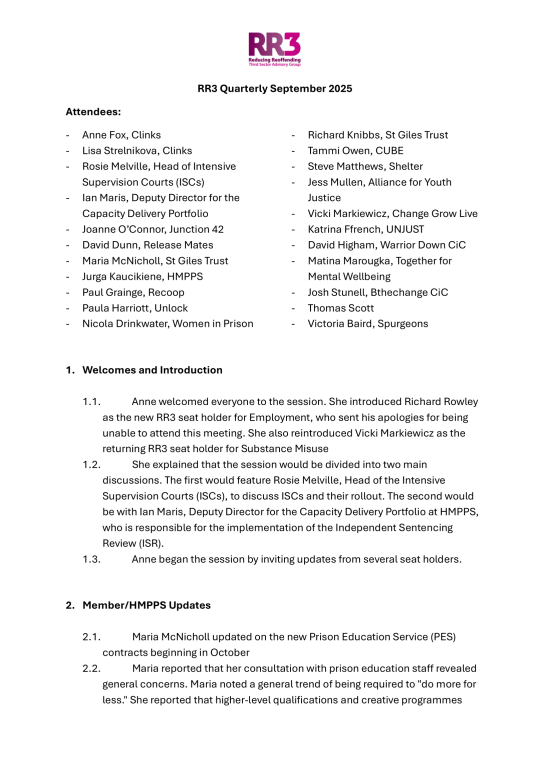The Lammy Review into the treatment of, and outcomes for black, Asian and minority ethnic (BAME) individuals in the criminal justice system once again highlighted the significant race inequalities in our justice system. Clinks held two roundtable events at both Labour and Conservative Party Conferences, supported by Barrow Cadbury Trust, to discuss the Review’s findings and recommendations. Each week an attendee at one of the roundtables will write about their reflections on the review, in the context of their own position and sphere of influence, and what they plan to do in response to it. Keep an eye out for future blogs from David Lammy MP and PCC Paddy Tipping amongst others.
The second blog in the series comes from Conservative Londonwide Assembly Member Shaun Bailey.
As a black child growing up in one of the poorest parts of west London, I witnessed first-hand the daily struggles of minority communities, and the impact of over-policing and bias in the criminal justice system.
I watched as many of my peers fell victim to the cycle of poverty, crime and mistreatment by a system with obvious flaws, and became determined to work to end the discrimination against minority communities in the criminal justice system (CJS).
In particular, I have focused on youth crime and have worked to provide support for young people whose background is similar to mine - and by that I mean lacking some of the support to maximise the opportunities provided by this country. I have worked with youth groups for over 25 years, and know that while young people need support in dealing with crime, parents also need to be educated and provided with support networks within their neighbourhoods.
I am proud to be a member of the Conservative Party which started this review. Former Prime Minister David Cameron’s decision to restart this difficult conversation and launch the review was a crucial step to improve the lives of black and ethnic minorities. The Review remaining a priority for government, through a change in party leadership, demonstrates the ongoing commitment to this.
David Lammy MP has done an exceptional job in heading this review and helping to reintroduce this issue into the national conversation. I was pleased to be a member of the Advisory Board because helping to shape the direction of such an important discussion is the first step in a lengthy process of repairing trust in the criminal justice system.
I was not surprised by the findings of the Lammy Review as documents such as the Young Report and many others have highlighted similar issues in the past and I have been acutely aware of this injustice my whole life. I have both personally witnessed and been told countless stories about the unfair treatment in the CJS of people from black, Asian, and minority ethnic (BAME) backgrounds.
The Review found that we are unjustly over-represented in prison populations. This stems from inequalities at every level of the criminal justice system, from a disproportional amount of stop and searches of minorities to a lack of BAME individuals in positions of leadership within the CJS.
These systemic imbalances have caused an undercurrent of distrust between the CJS and BAME communities which must be rectified before any concrete progress can be made.
Additionally, the Prime Minister has gone a step further to positively change the experiences of black and ethnic minority communities in Britain by releasing the uncomfortable, but important, ‘race audit’.
The audit found that black people are at a disadvantage in several aspects of life, from the criminal justice system, to the housing market, to schools.
There is often a conflation between addressing societal inequalities and minorities wanting ‘special treatment’. In fact, all we are asking for is acceptance and parity in the eyes of the law and public services.
Changes can be made to begin the process of change. Right away, we can encourage and help more BAME individuals develop the skills to be qualified for positions of seniority in the CJS and other parts of our public services and private business world; increase transparency between the CJS and the public; improve the professional practices of judges and lawyers; educate parents on how to support their children through the criminal justice process; and, most importantly, confront implicit biases against minorities.
In addition to this, members of our communities need to advocate for themselves. Communities must educate themselves on the mechanisms of the CJS and ask for support when dealing with the system. BAME individuals should strive for positions within the police and the courts, and communities must demand transparency from leaders.
I am hopeful that the criminal justice system and British society as a whole will take note of the Lammy Review’s findings and start the process of enacting meaningful changes in practices which will help restore confidence among BAME communities in our judicial system and improve outcomes for all those involved. This is an important report for all British communities because, for me, the most important part of what it means to be British is that we all live under the same law.
What's new
Blogs
Homelessness Strategy Blog
Publications
Latest on X
The role is for a leader from an organisation focused on racially minoritised people, with expertise in service delivery, policy, advocacy, or related areas in criminal justice. Racial disparities are present at every CJS stage. This role ensures these voices are central in shaping policy to help address and eradicate them. Apply by Mon 18 Nov, 10am. More info: https://www.clinks.org/voluntary-community-sector/vacancies/15566 #CriminalJustice #RR3 #RacialEquity

